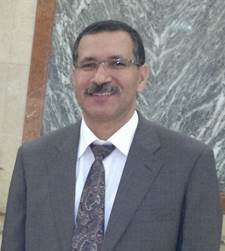Demographic Imbalance in the Gulf Cooperation Council (GCC): its causes, symptoms and consequences
The oil bounce of the mid-seventies in the Gulf Cooperation Council States has contributed to the financing and constructing of infrastructure, economics, and development projects of these countries. This has led to the creation of thousands of job opportunities in the Arabian Gulf States with varying degrees. This, in turn, resulted in a need for skilled and unskilled workers in many fields such as: road construction projects, schools, health centers and government offices, as well as in factories, markets, electricity and water networks, sanitation and other infrastructure and development projects. Given the small size of the national labor force, it necessitated bringing in expatriate workers (Arab and non-Arab) with various skills to work in these projects and sectors. The study aimed to monitor and analyze the causes, symptoms and consequences of the demographic imbalance in the Gulf Cooperation Council (GCC). The study made use of the analysis of available census data of the Gulf Cooperation Council (citizens and expatriates) in the secretariat of the GCC countries and regional and international organizations. Analysis, presentation and the results of the study used modern techniques of statistical and GIS programs. The study showed that expatriates workers (Non-Arab and Arab) represent approximately 46.1% of the total population of the Gulf Cooperation Council States. It also revealed that there is a considerable geographical variation in the proportions of foreign labor force among the GCC countries, ranging from 52.9% in Saudi Arabia to 94.4% in Qatar. The study revealed that the large size of the expatriate workers in most of the GCC countries has caused significant disturbance in the demographics of these countries. It also revealed that it is currently difficult to dispense expatriate workers. The study recommended paying attention to training national manpower and gradually replacing expatriate workers, especially the Asian, coordinating and organizing the Arab labor market in order to use a great number of Arab laborers to strike a quantitative balance between the Arab and Asian laborers.




